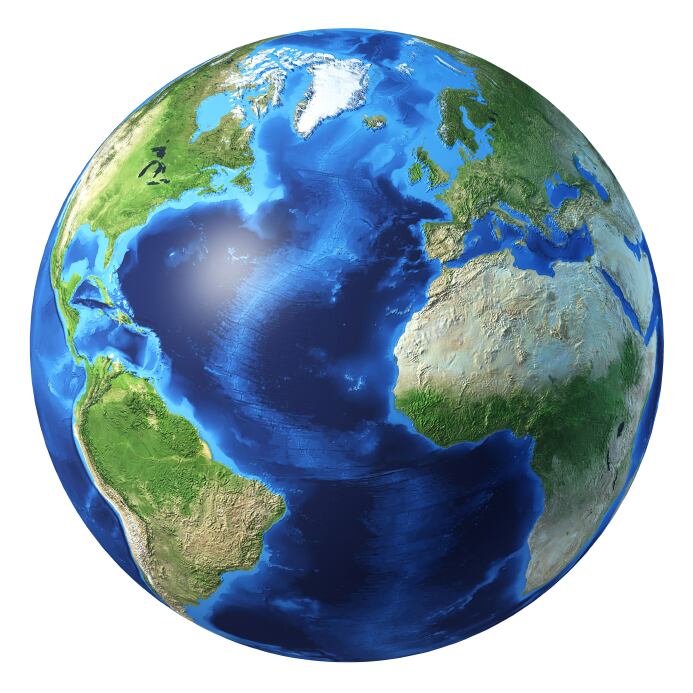At 200 to 1,000 meters, the deep sea twilight zone may be beyond the reach of daylight but it is teeming with life.
The zone holds up to 90% of the world's total fish biomass – equating to 1.3 tonnes of fish biomass for every person on earth, according to a paper published in Frontiers in Marine Science.
This could hold enormous potential as an untapped omega-3 and protein pool in a time when increasing pressure is put on global food and feed resources, the authors from Denmark, the UK, Portugal and Spain said.
"Life in the twilight zone is a huge potential source of fishmeal and omega-3 to feed the world's population. But we have also to deal with a kind of ‘no man's water’, where there are no rules for fishing,” said Professor Michael St John, one of the study’s authors and oceanographer at the Danish Technical University (DTU).
“We know so little about the biological processes in the twilight zone, that it is impossible to accurately estimate how large a fishing stocks it can sustain. It is estimated that there are more than one million undescribed species in the zone, which we do not even know about yet."
The researchers – which include Ricardo Serrão Santos, a researcher at the University of the Azores as well as a Member of European Parliament (MEP) for Portugal, hope the paper will highlight the danger of an “unregulated ‘gold rush’” once technology catches up and fishing in these zones becomes economically viable.
Professor St John told us this was the single most pressing issue in marine biodiversity today. “It’s a real worry.”
Big pros, big cons
He said while use of these deep sea resources could help alleviate pressure on coastal fish stocks, one big concern was the potential impact on global warming.
The 245 species of myctophiids found in these waters play a key role in extracting carbon from the atmosphere through surface feeding. When the fish return to the deep waters, they take the carbon down with them, where it stays for hundreds of years.
One such fish, the bristlemouth, is the most abundant vertebrate on the planet. Larger fish and animals like tuna, whales, dolphins and sea birds feed on it and the researchers warn changes in these stocks could be felt across the food chain.
“We know so little about how resilient these communities are to fisheries.”
Testing the waters
Despite big gaps in knowledge and regulation, some pilot projects in Iceland, Norway and Denmark are already pushing through.
While the catch sizes are currently small, professor St John said it was only a matter of time before the technology for deep sea trawling was optimised.
Tapping into unexploited resources is key in the EU's 2020 goal for ‘Blue Growth’.

Yet he said more research was needed before the EU worked this deep sea resource pool into the strategy – and said the stocks should be ring-fenced until more is known about the resilience of these communities.
The ‘blue economy’ currently provides about 5.4 million jobs in Europe and contributes almost €500 billion a year to European economies.
Professor St John said environmental concerns around deep sea fisheries had not yet been considered in Europe – and suggested this may be a political omission given Europe’s ‘blue growth’ plans.
Sustainability efforts
However, he said most fisheries welcome research in this area and understood the importance of safeguarding stocks for future generations.
The omega-3 industry itself has upped sustainability in recent years.
Last year Friend of the Sea certified 76 companies from 23 different countries producing fish oil, fish meal, fish feed and omega-3 supplements.
Similar interest has been seen in alternative certification schemes like that of the Marine Stewardship Council (MSC).
But last year a damning report from NGO Sustainable Fisheries Partnership (SFP) found over one third or 3.5 million tonnes of fish stocks destined for fish oil supplements were ‘poorly managed’ in its sustainability report of 24 ‘reduction fisheries’ – stocks turned into fishmeal and fish oil.
At the time trade group GOED (Global Organisation for EPA and DHA Omega-3s) said the report lacked nuance in its evaluation of stock health.
The European fish oil market accounted for $0.69bn (€0.63bn) of the global $2.25bn (€2.04bn) market in 2014, according to a market report from Grand View Research.
Authors: Frontiers in Marine Science
Published online ahead of print,doi: 10.3389/fmars.2016.00031
“A Dark Hole in our Understanding of Marine Ecosystems and sina Services: Perspectives from the mesopelagic community”
Authors: M. A. St.John, A. Borja, G. Chust, M. Heath, I. Grigorov, A. P. Martin, R. Serrão Santos and P. Mariani
